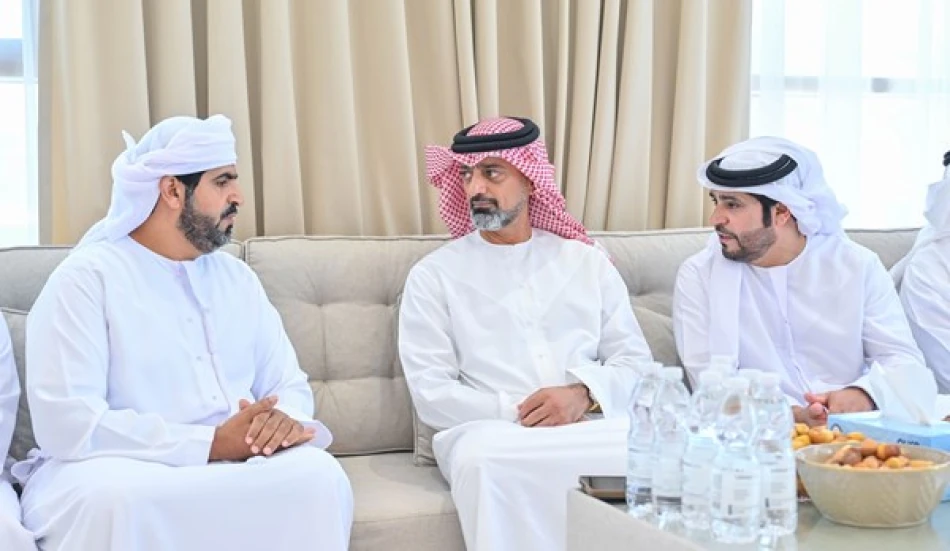
Mourning the Passing of Ali Obaid Al Ketbi: Ammar Al Nuaimi Offers Condolences
Ajman Crown Prince Leads Community Mourning in Traditional Condolence Visit
Crown Prince Sheikh Ammar bin Humaid Al Nuaimi of Ajman demonstrated the UAE's enduring commitment to tribal solidarity and community bonds by personally attending condolences for a local citizen, reinforcing the social fabric that underpins the Emirates' governance model amid rapid modernization.
Royal Presence Honors Local Citizen
On Tuesday, Crown Prince Sheikh Ammar bin Humaid Al Nuaimi, who also serves as Chairman of Ajman's Executive Council, paid his respects at the mourning council for Ali Obaid Rashid bin Tama'a Al Ketbi in the Raqayeb area of Ajman. The visit exemplifies the accessible leadership style that has become a hallmark of UAE governance.
During the visit, the Crown Prince expressed his sincere condolences and heartfelt sympathy to the deceased's family, praying for divine mercy and patience for the bereaved relatives. The gesture reflects deeply rooted Emirati traditions where leadership maintains direct connections with citizens regardless of social status.
Institutional Support for Community Traditions
Accompanying the Crown Prince were Sheikh Mohammed bin Ammar bin Humaid Al Nuaimi and Youssef Mohammed Al Nuaimi, Director General of the Protocol and Hospitality Department in Ajman, demonstrating institutional commitment to maintaining cultural practices.
Balancing Modernity with Heritage
This condolence visit highlights how UAE leadership continues to honor traditional obligations even as the country positions itself as a global business and technology hub. Such personal engagement by senior royals serves multiple purposes: it maintains legitimacy through visible care for citizens, preserves cultural authenticity, and reinforces the social contract between rulers and ruled.
Governance Through Personal Connection
The Crown Prince's attendance reflects a governance philosophy that distinguishes the UAE from other rapidly developing nations. While countries like Singapore or South Korea achieved modernization through technocratic approaches, the Emirates have maintained traditional leadership accessibility alongside economic transformation.
For investors and international partners, such displays of social cohesion signal political stability and continuity—factors that have contributed to the UAE's reputation as a reliable business destination. The preservation of cultural practices while embracing global commerce creates a unique value proposition that has attracted significant foreign investment and positioned Dubai and Abu Dhabi as regional hubs.
This balance between tradition and progress continues to serve as a model for other Gulf states navigating similar transitions, demonstrating that rapid development need not come at the expense of cultural identity or community bonds.
Most Viewed News

 Layla Al Mansoori
Layla Al Mansoori






